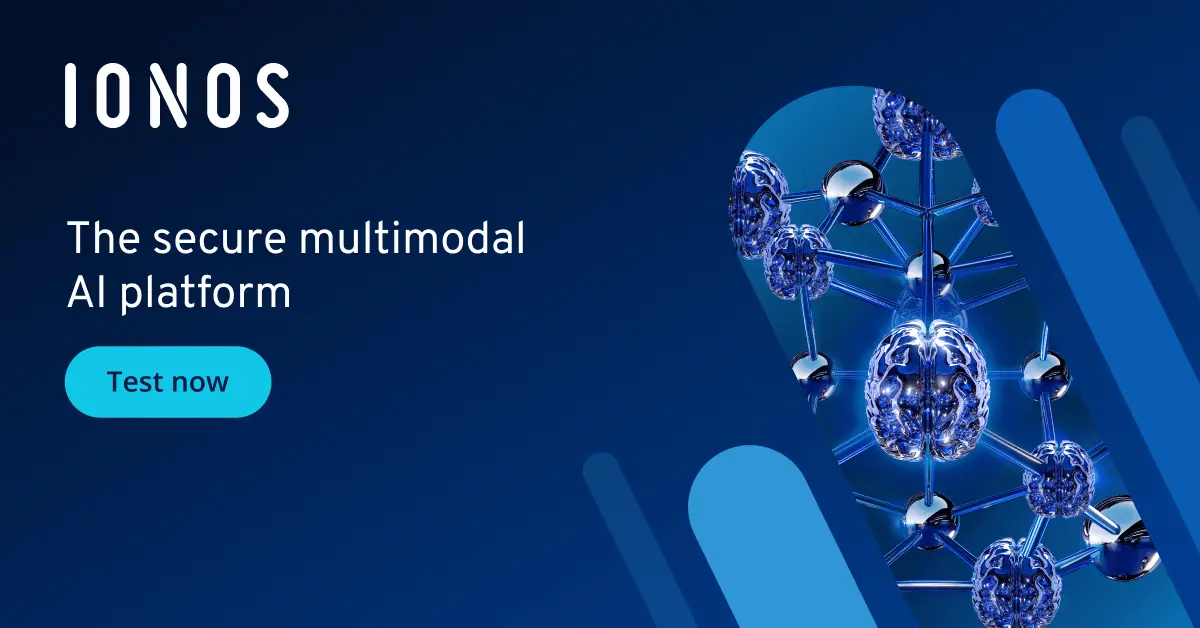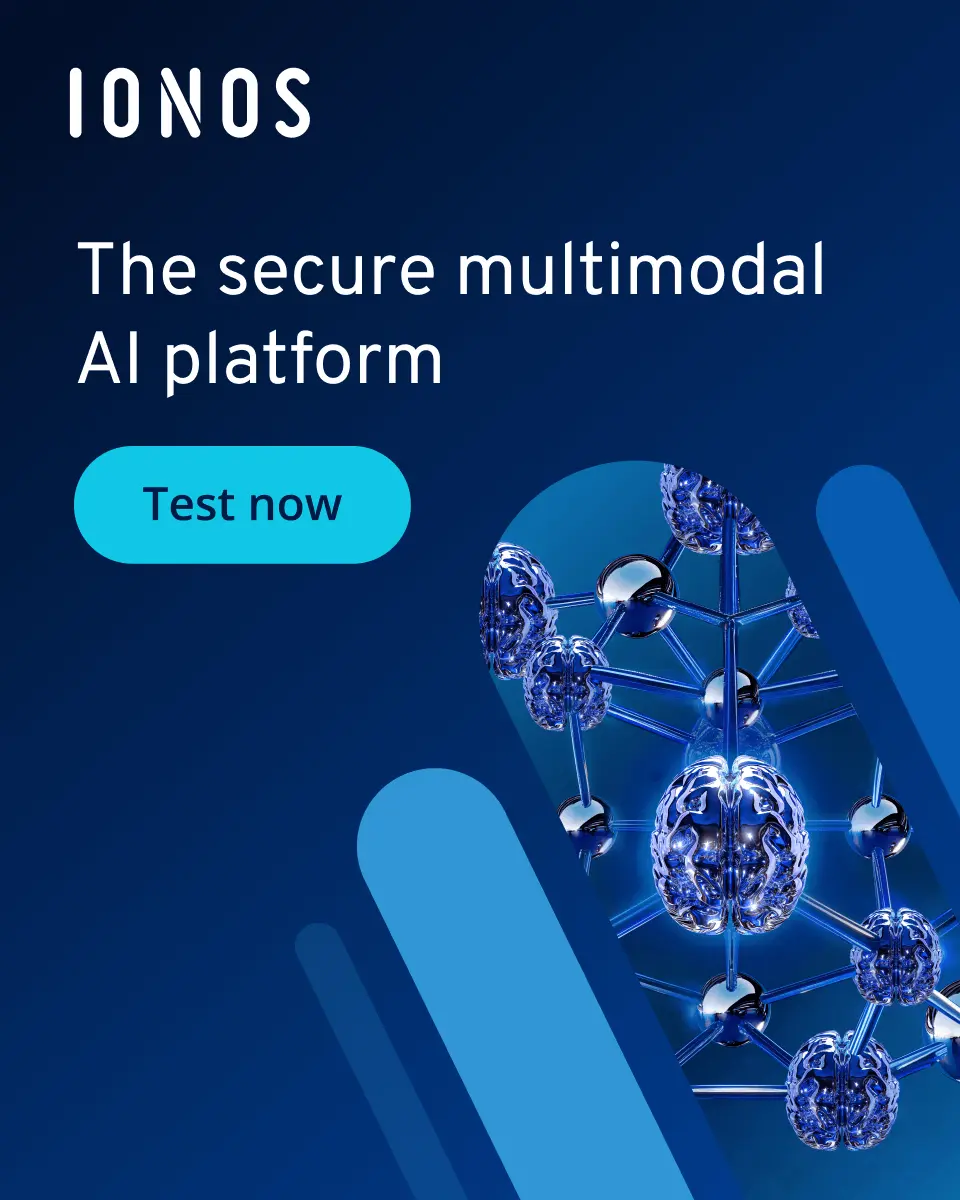What are the basics, tools and solutions for AI in companies?
AI in companies is part of everyday life in many industries. However, the technology can only achieve the desired results if it’s trained, deployed and monitored correctly. If this is done, companies will benefit massively from artificial intelligence.
The opportunities and advantages of AI in companies
Artificial intelligence (AI) is used in companies to…
- Optimise workflows
- Minimise errors
- Save time and money
The technology can be used in many areas and can make a valuable contribution both within the company and when dealing with customers. The biggest advantage of AI in companies is the increase in productivity. Time-consuming and error-prone tasks in particular can be automated by using appropriate AI tools for companies. Ideally, the technology delivers optimal results in fractions of a second, allowing human specialists to concentrate on other tasks.
AI in companies can identify trends, correlations, or potential issues at an early stage, enabling them to secure an edge over competitors or prevent drawbacks. With the help of machine learning, AI can be customised to meet the unique needs of a company, delivering tailored solutions for specific challenges. In addition to these tasks and opportunities, AI also provides a valuable service to the company in retrospect. Automated and comprehensive AI data analyses enable continuous monitoring of all important steps. Adjustments and optimisations are thus identified and made possible for future projects. The accuracy of the technology is already impressive and is increasing day by day.
- 100% GDPR-compliant and securely hosted in Europe
- One platform for the most powerful AI models
- No vendor lock-in with open source
What challenges arise from the use of AI in companies?
It’s important to consider the challenges that arise if AI is to take a firm place in the company.
Security and data protection
The biggest challenges lie in the area of security and data protection. Even AI systems are not safe from cyberattacks without the necessary protective measures. Since artificial intelligence may handle sensitive data, appropriate precautions must be taken here.
The right database
AI is only beneficial for your company if it has been pre-trained with extensive and diverse data sets. The more effectively the AI learns, the more precise its results will be. It’s crucial that the data is current, accurate, and free from biases, as flawed or incomplete data sets can severely affect performance. Regular data maintenance and updates are vital to guarantee consistent and reliable outcomes over time.
Human control
Without the necessary control, AI in companies cannot deliver satisfactory results. While the technology is highly advanced, mistakes can still happen. The results must be meticulously reviewed by human experts, who can correct any errors to ensure a convincing outcome and enable the AI to deliver even more precise results in the future. This is especially critical in sensitive fields like medical diagnostics or finance, where thorough validation is indispensable.
Lack of specialist staff
Not all AI tasks can be performed by non-experts, or at least experts from outside the field who are perfectly familiar with their industry but have had no contact with AI in companies. However, specialists who train and monitor AI are still in short supply so it can be difficult to find the right professionals. Companies should therefore invest in the further training of their existing employees or specifically promote junior staff to close the gap. Collaborations with universities and research institutions can also help to facilitate access to talented professionals.
Ethical issues
The use of artificial intelligence, particularly in companies, frequently brings up ethical concerns. One key aspect is the need for transparency in how the technology is used. Decision-making processes must always be clearly understandable. Additionally, AI models can still produce incorrect or biased conclusions if the training data is flawed. In the worst cases, this can result in discriminatory outcomes or imbalanced decisions. To address these issues, companies should either prevent them through careful planning or communicate them openly to maintain trust and accountability.
Legal security
This is particularly important with regard to the last major challenge. As artificial intelligence is involved, questions of responsibility and, ultimately, liability must be clarified in advance and also communicated in a comprehensible manner.
The most important fields of application of AI solutions for companies
AI is used in numerous companies and improves a large number of work processes. The possibilities are almost unlimited and will increase significantly in the future. The following examples of AI in companies provide a first impression.
- Customer service: Automated feedback analysis and AI chatbots enable customer needs to be met more quickly and efficiently.
- Text and image creation: AI tools for companies enable the faster and more cost-effective creation of texts, images and videos - for example for marketing measures, newsletters, online presences or other content.
- Meetings: There are programs that record, transcribe and summarise video calls. AI can also be used to find appointments.
- Recruiting: Recruitment processes in large companies can be made more efficient for both parties using AI.
- Monitoring: AI solutions for companies monitor processes, recognise (potential) sources of error and upcoming trends at an early stage or generally help with the evaluation of campaigns and AI market research.
- Software development: When creating new software, databases and code modules can be created and maintained using AI code generators.
- Inventory control: The use of AI in companies with stock levels can optimise the entire procurement process. The technology monitors incoming and outgoing goods, detects impending shortages and ensures better accounting.
- Manufacturing and maintenance: AI is used to check products for faults during production. Corresponding AI solutions for companies can predict machine failures and prevent them with appropriate maintenance recommendations.
- Healthcare: There are various possible applications for artificial intelligence in the healthcare sector. For example, it monitors patient data or makes diagnoses based on X-ray images. Of course, in this case, it’s only used to assist doctors.
What conditions are required?
If you are planning to use AI in your company, you should first invest in the groundwork. Once you’ve created the right conditions, the technology can offer real added value to your company. The following steps are essential:
- Define goals: First think about the specific work steps for which you would like to introduce AI in your company and what results you hope to achieve by using it. This is the only way to find the right solution.
- Create legal certainty: Establish a binding framework in advance to ensure that issues of responsibility and liability are clarified. This applies in particular to data protection.
- Train the AI: AI for companies is only as good as the data set it has been trained on. Only with relevant data can the solution learn subtle nuances and deliver better results later on.
- Monitor results: Make sure you hire professionals with the necessary expertise to monitor the AI in your company on an ongoing basis. After all, as impressive as the capabilities of artificial intelligence are, it requires human supervision.
- Get online faster with AI tools
- Fast-track growth with AI marketing
- Save time, maximise results

